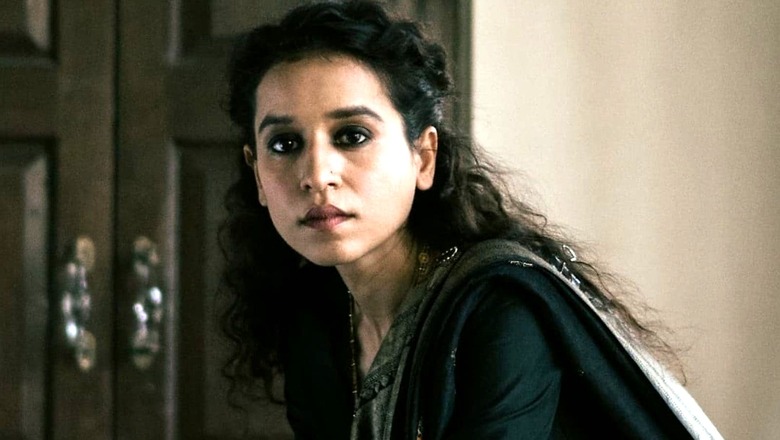
views
Tillotama Shome, who made her acting debut with Mira Nair’s Monsoon Wedding in 2001, got her first international acclaim with the 2013 film Qissa, which was followed by the 2019 film Raahgir – The Wayfarers. For the former, she had bagged the best actress title in the New Horizons Competition at the Abu Dhabi Film Festival, and the latter had got her the Best Actor Award at the UK Asian Film Festival. However, Shome says that there is nothing like getting love from the people of one’s own country.
In a candid chat with News18.com, the actress shared, “I’m grateful for all the international awards that have come even before with Qissa but I really want to say that being recognized in your own country, and your work being accessed by the people in your country feels wonderful. That happened with ‘Sir’, which hadn’t happened with any film of mine before. While it was wonderful, to get recognized by countries other than your own, it felt very lonely, to work for 20 years and not be recognized by your own country and its people.”
She continued that her winning awards abroad did not change anything back at home as her work didn’t have theatrical access and distribution in India. “What I did enjoy was the anonymity that people didn’t know who I was, but people knew my work, which is lovely and a really nice place to be in. However, it also made it challenging for the producers of the kind of stories that I wanted to be a part of, to get a larger distribution. And I think that with the onset of OTT, and ‘Sir’ being such a big hit among the Indian audience, that really changed the game for me.”
“So I am very happy about all the international awards, but the greatest award was being accepted by people from my own country,” she shared.
Shome also added that she is finally getting to be a part of stories she is curious about. “It’s like I have waited for 20 years for this. I’m glad that there are people who are telling stories about the worlds that I’ve never been a part of before, characters that have never been offered before.”
The actress, who was also seen in popular series and movies such as Mentalhood and Angrezi Medium, also forayed into the world of audio storytelling, and even there, she chose a role she resonates with. Shome, along with several other talented actors is a part of Neil Gaiman’s The Sandman’s Hindi adaptation which can be heard on Audible. Talking about the strong character she plays, she said, “I play Calliope, who is a goddess. She’s this really powerful woman who used to be the muse of even Homer. But when you find her in Sandman, in Neil Gaiman’s version, this woman is a prisoner. And she has been imprisoned by these men for their creative inspiration. she has been imprisoned by men so that they can she can inspire them, but what about her?”
“So Gaiman has created a powerful female character that criticizes the tendency men have of pedestalizing women and turning them into Goddesses so that they don’t have any freedom or agency. And Calliope cries out in pain in this show and says, ‘I was not born just to be your inspiration.’ It’s a powerful commentary on this idea of a woman being a muse and male voices using a female body for their creative ends, without giving thought to what the woman’s own agency is.”
She also said that she believes she should be a part of stories that are not regressive, given that she has the privilege of choosing. “It feels good to be part of a character that’s a powerful social commentary on the kind of roles women are tired of playing. Given the privilege I have if I don’t tell these stories then who will? I don’t have to say yes to work even if the portrayal of women in it is regressive because I have to pay my bills or I am in a desperate situation. It’s very important for me to think about the kind of women I want to portray.”
Tillotama also shared that the concept of colourism is changing in Indian cinema, while ensuring a question about her facing the same in Hollywood. A certain director had asked the actress to apparently darken her skin tone. Talking of Bollywood, she said, “I’m working with people who don’t have these biases. The kind of jobs that I’m offered right now is so antitype of the kind of jobs I’ve got before that it gives me hope. But in terms of colour, these biases and prejudices are so deep, that a person may even go on to cast someone and be very colour progressive and correct but they may still have those biases deep within their heart. These are deep, systematic, sociological prejudices that will not go away just by casting dark-skinned characters in 1-2 films.”
“Men and women are fighting for telling the kinds of stories that they want to tell. There are different stories coming from different parts of India now and not just the metros. We are hearing different voices, seeing different kinds of actors, and different body shapes and the change is coming because the stories are changing,” Tillotama Shome concluded.
Read all the Latest Movies News here



















Comments
0 comment